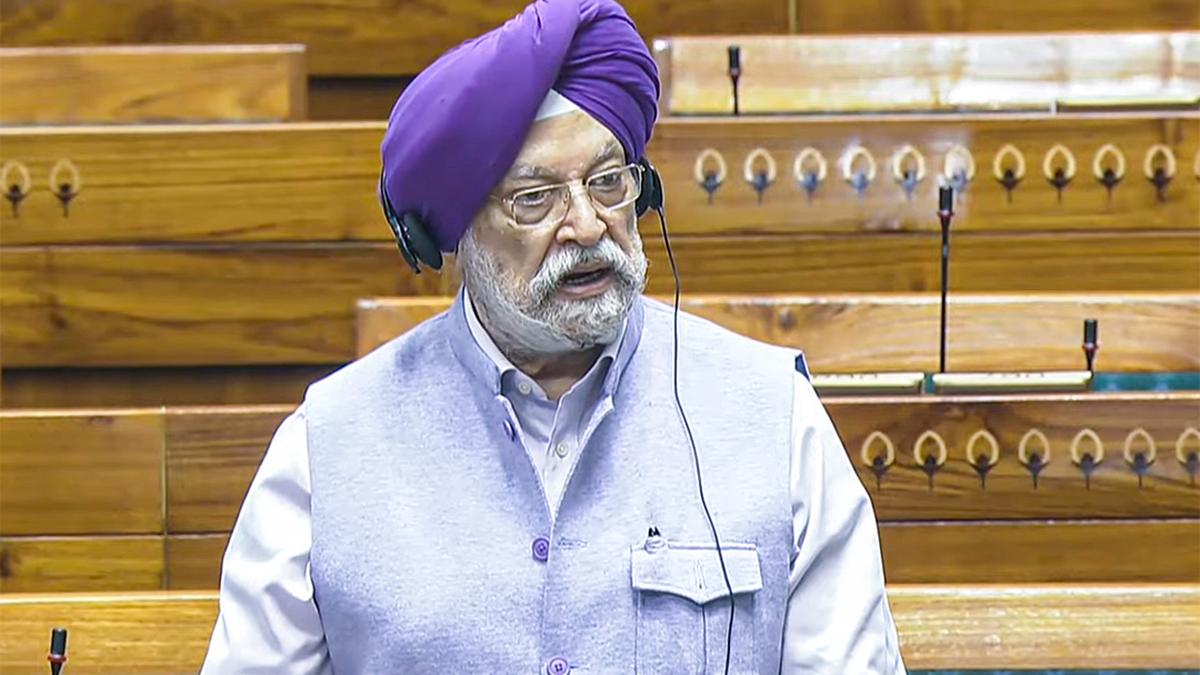
Hardeep Singh Puri
| Photo Credit: ANI
At a media event in Delhi, Union Petroleum Minister Hardeep Singh Puri refuted assertions about impact on vehicular efficiency with the use of ethanol-blended fuel. He addressed them as part of a “vilification campaign” being facilitated by “vested, economic interests” which won’t work.
Mr. Puri underlined that similar attempts were made when compressed biogas was introduced. “You must have faith in your agriculture, biomass, annadaata and urjadaata. Things will work out,” he argued.
Incidentally, the Petroleum Minister’s remarks follow a similar assertion made by his counterpart at Transport Ministry Nitin Gadkari. At The Hindu mind event Thursday, he had refuted similar assertions as “politically motivated”.
“Have not heard of any engine failures in five years”
Mr. Puri argued there has not been a single case of engine failure or breakdown since E20 became a base fuel about 10 months back. Specifically referring to Brazil’s 27% ethanol blend, Mr. Puri underlined, “Yes the calorific value may be maximum 3% lower, but in the last five years, I have not heard of any engine failure.”
Holding ethanol to be a success, the Petroleum Minister emphasised, “There is no problem with the engine. The German and Japanese are also running the same engine, they will (also) tell you there is no case of engine failure.” Thus, he held, the attempt at vilification will not work.
‘No sugar syrup’
Mr. Puri underlined sugar in the form of syrup was not being used for blending, Instead, sugar in the form of “heavy sea molasses” was being utilised to blend.
He explained that after the sugar syrup is taken out of the cane, it is wrenched to derive molasses. Thereafter, it is wrenched further until “nothing is left” to derive the sea heavy molasses.
‘Scientifically validated’
India’s ethanol blending programme is scientifically validated, globally proven, strategically crucial for the nation’s energy independence and ensures farmer welfare, said the Indian Sugar and Bio-Energy Manufacturers Association (ISMA), as per a report from Coimbatore.
The ethanol blending programme has emerged as a game changer for over five crore sugarcane farmers across India. More than ₹1.18 lakh crore has been transferred to farmers through the ethanol eco system. This improves the financial health of sugar mills, ensures timely payments to farmers, and helps manage excess sugar inventories, ultimately stabilizing sugarcane prices and protecting farmer incomes, it said in a press release.
Globally, countries such as Brazil use ethanol blends ranging from E20 to E100 without reports of widespread vehicle issues. Brazil currently blends over 27 % ethanol in its petrol, with advancements to achieve 30% base blend by 2030.
“Ethanol-blended fuel is not just a technological choice—it is a national imperative,” said Deepak Ballani, Director General of ISMA.
Published – August 08, 2025 08:03 pm IST
